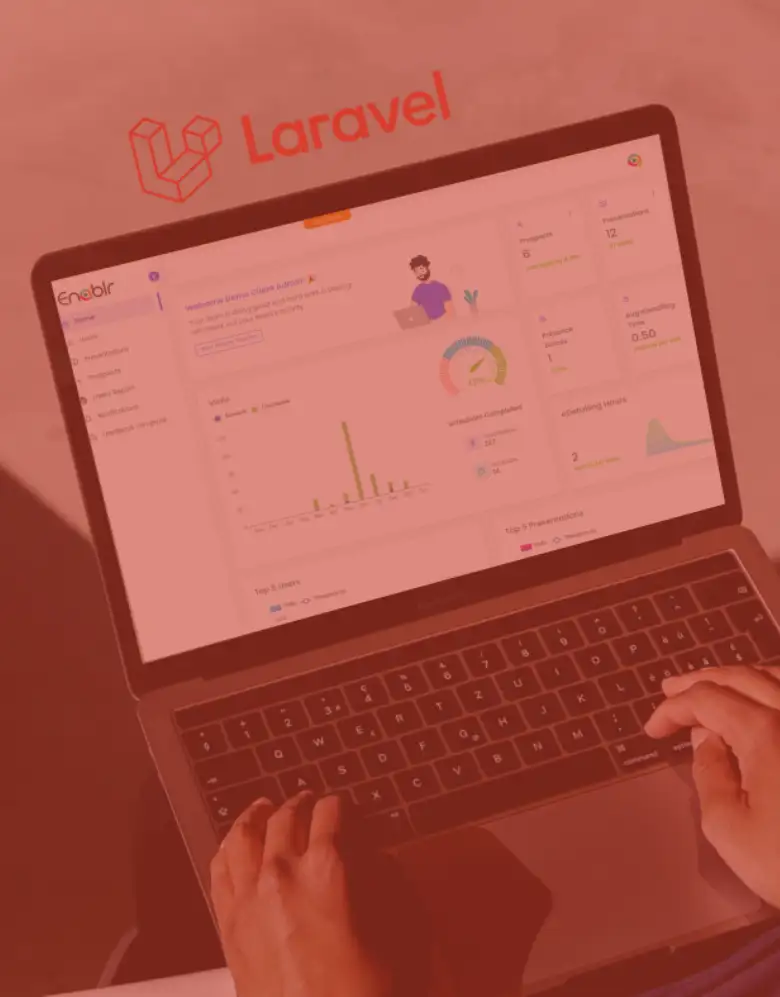_ SERVICES
Laravel

A Powerful and Popular PHP Framework
Laravel is a powerful and popular PHP framework for building web applications. It provides developers with a robust set of tools and features to streamline the development process and create scalable and efficient applications. Laravel offers a wide range of features that make it a popular choice among developers. Laravel comes with a wide range of built-in features that can streamline the development process.
These include routing, authentication, caching, queuing, and more. Additionally, Laravel has a modular structure that allows you to easily integrate third-party libraries and packages. Laravel PHP framework offers a rich set of features, excellent documentation, and a vibrant community of developers, making it an ideal choice for building robust and scalable web applications.
_ KEY FEATURES AND ADVANTAGES OF LARAVEL
Drupal has a vibrant and enthusiastic community of users and developers ready to lend a helping hand. Whether you’re a seasoned pro or just starting out, you can tap into this wealth of knowledge and support to get the most out of your Drupal experience. It’s like having a whole army of Drupal-loving friends at your fingertips.
_ Laravel’s architecture and principles
The Model-View-Controller (MVC) pattern
Laravel follows the MVC architectural pattern, where the Model represents the data and business logic, the View handles the presentation layer, and the Controller acts as the intermediary between the Model and View. This separation of concerns allows for cleaner code and easier maintenance.
Laravel’s request and response flow
Understanding how Laravel handles requests and generates responses is essential for building efficient applications. Laravel’s request and response flow involve routing, middleware, and controllers, allowing for flexible and customizable handling of HTTP requests.
Dependency injection and service container
Laravel utilizes dependency injection and a service container to manage the application’s dependencies. This makes it easy to write testable and modular code, as components can be easily swapped and dependencies can be automatically resolved.
Laravel’s event-driven architecture
Laravel incorporates an event-driven architecture, allowing developers to decouple components and create loosely coupled systems. Events and listeners provide a way to trigger and handle application events, making it easier to add new features and extend the functionality of the application.
_ Laravel’s powerful toolset and libraries
One of the greatest strengths of Laravel is its seamless integration with Composer, a dependency management tool for PHP. With Composer, you can easily integrate third-party packages into your Laravel projects. Whether you need a powerful image manipulation library or a feature-rich payment gateway, there’s probably a package available on Composer that can save you hours of development time. Simply specify the package you need in your project’s composer.json file, and Composer takes care of the rest.
